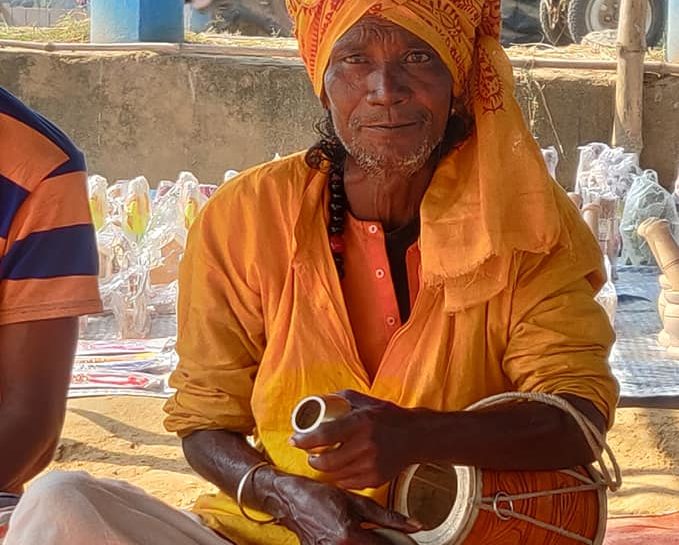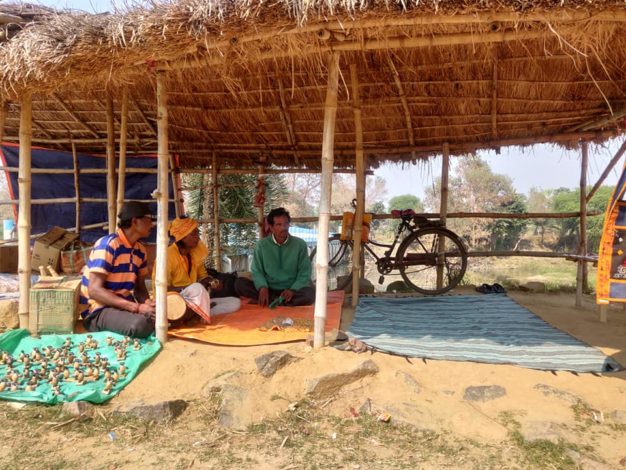
Written by Tanushree Bhowmik
Dear unchaste, wanton Radha
The mischievous Kanu is atop the kadam tree
Dear one, do not go for a bath…
The unmistakable beats of the khamak, a folk instrument that combines string and percussion, along with this song in a powerful, raspy voice led us to Sukumar Baul. He sat under a thatched roof, with his two accompanists singing this song on the banks of the Kopai river. Kopai river, that had inspired Tagore to write one of his most famous poems for children. On the sides, a couple sat selling roundels of the famous nolen gur, which they had made in the early morning. This perhaps was the most iconic setting that rural Bengal could throw our way!
His voice was such that we couldn’t just walk past, so we stood listening. He gestured us to come in and sit on a makeshift bamboo bench. He continued singing, one of his accompanists, attempting to translate the poetry to Hindi for Om’s benefit. Just behind him was a man selling two ektaras, another single string Baul musical instrument. I picked one and Sukumar Baul offered to tune it for me, teaching me how to hold it. He then handed me his khamak, showing me the right grip and how to pick a taal on it! The instruments are tough to play, and I asked him how long has he been training. “Since childhood”, when he started living with the Bauls in the akhara in a village near Siuri. He continued with his songs…

The song he drew us in with is about Radha and Lord Krishna’s love, where her friends warn her that she is vulnerable to Krishna’s mischievous pranks. Kolonkini has myriad meanings but here it means a wanton woman, thus emphasising a woman’s power over her own urges against the society’s rules. The poet lovingly calls the Lord ‘haramzada’, a slang that here means mischievous, thus anthromorphosizing godly figures, a common features in folk music of bhakti genre.
Written in Brojoboli, by Baul Samrat Shah Abdul Karim from Bangladesh, the song is unique. Not only because it is written by a Muslim gentleman, in a dialect borrowed from Brij region of Uttar Pradesh, based on Vaishnava tradition of Radha-Krishna’s Rasleela, but also because it transcends Baul and is also sung as a Kamrupi lokogeet, a folk music genre from Assam. One song that stands to manifest the complex interrelationships of this land, the region, it’s tradition and art. Nothing that can be typecast and compartmentalised.
He bid us adieu with a song written by Purnadas Baul.
If one starts judging the caste of love
O brother! You would never find the moon…
Such a complex truth stated in such simple words, shattering all prudery with love in it’s ecstatic, purest form. True to the dervish Baul tradition that is likened to a wild and unpredictable wind against rigid rules of Manu. Their iconic patchworked garments symbolizing the syncretic, eclectic and anti-structure. Their spiritualism manifest in their suspicion of boundaries and their fascination with transcending them.